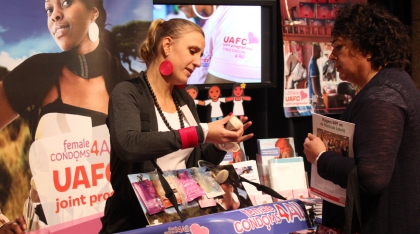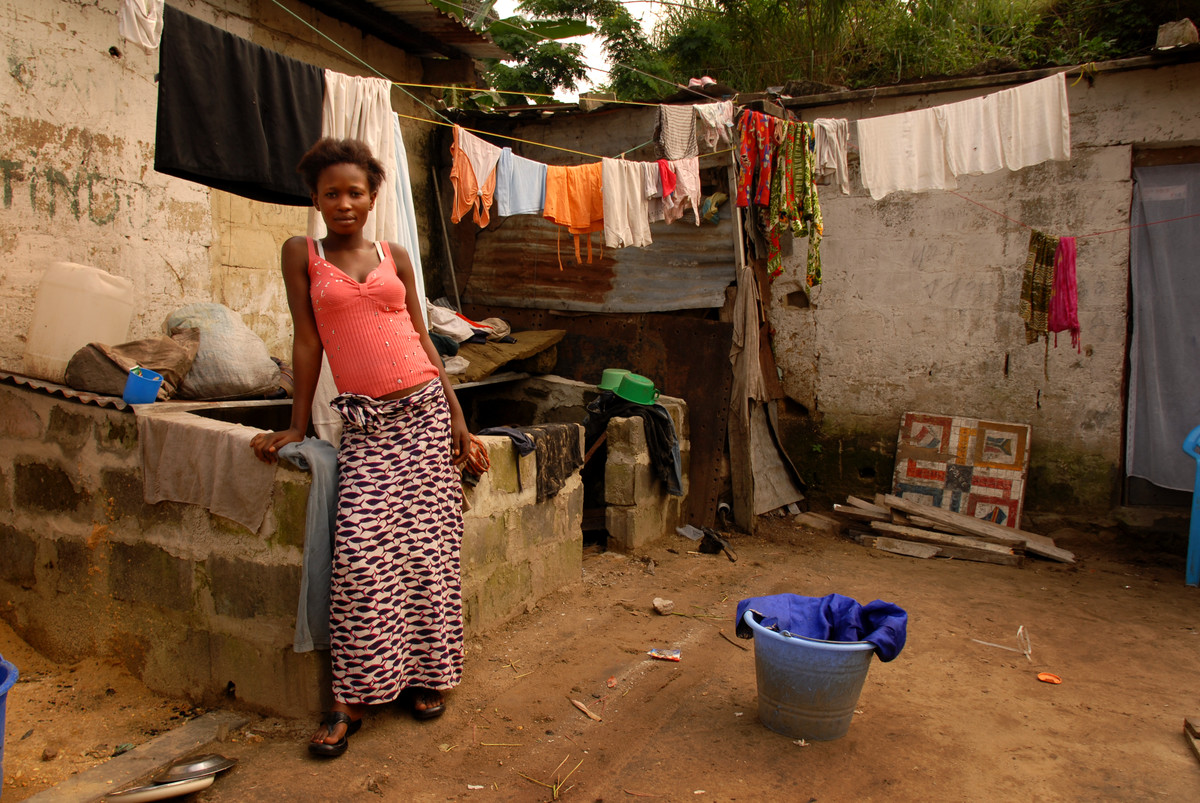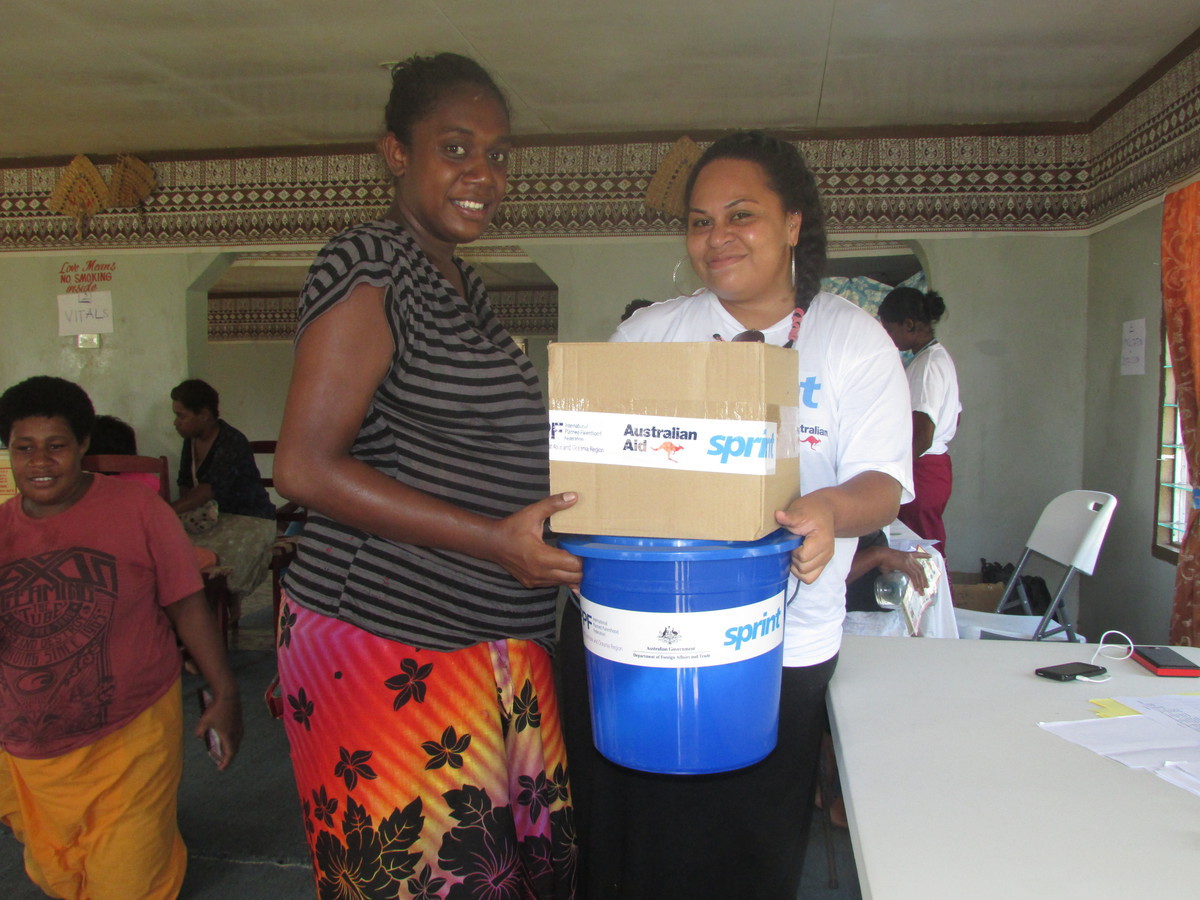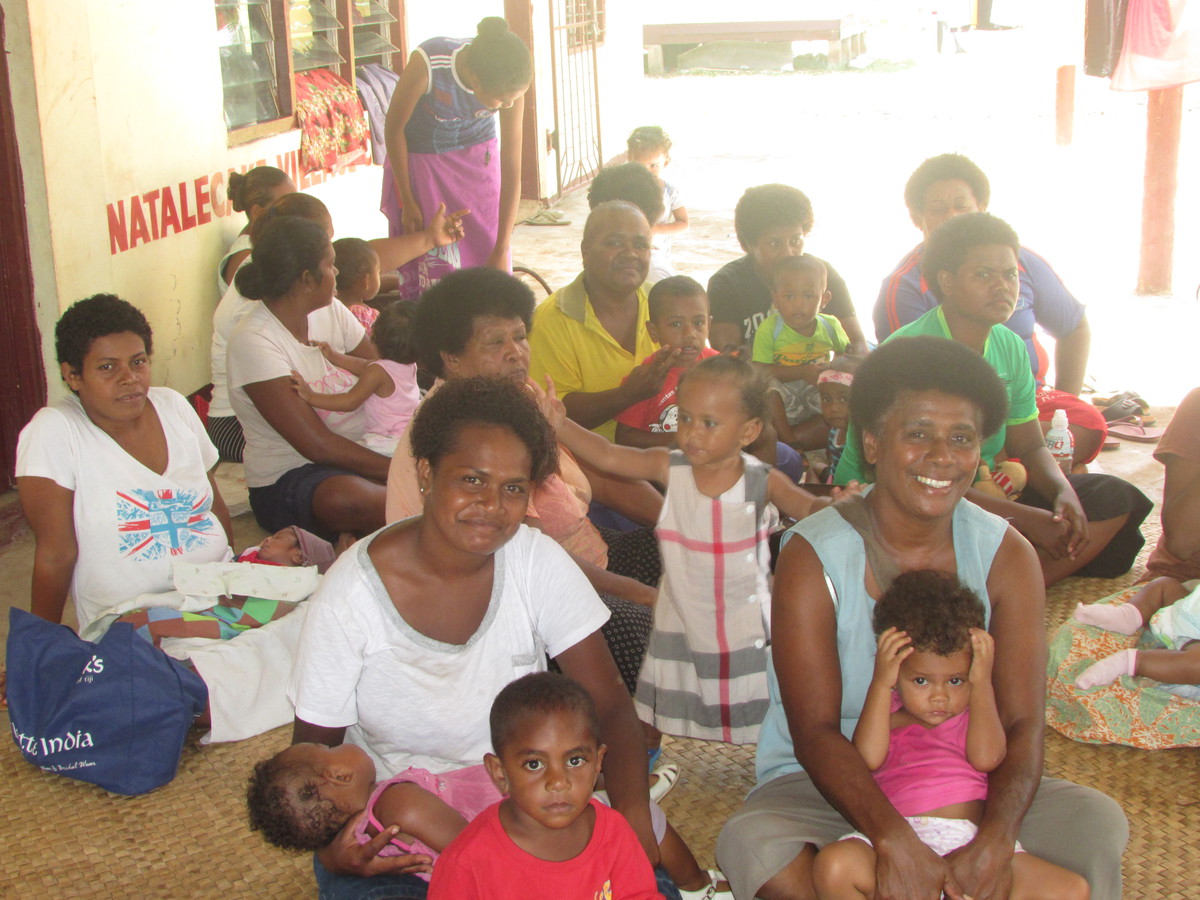
The majority of HIV infections are sexually transmitted or are associated with pregnancy, childbirth and breastfeeding.
Our work links prevention with treatment, care and support, reduces HIV-related stigma and discrimination, and responds to unique regional and national characteristics of the epidemic.
Articles about HIV and STIs

Webinar: Comprehensive female condom programming
On 19 November 2015, IPPF is holding a webinar in collaboration with the Universal Access to Female Condom (UAFC) on comprehensive female condom programming. Time: 11:00 AM Central European Time (CET) / 10:00 AM London (GMT) Female condoms are the only women-initiated, dual protection method available. They have been on the market for 20 years and recently many new innovations have emerged. There are now various female condoms available, made of different materials, with a ring, sponge or in the form of a tampon to ease insertion. Variety is the spice of life! Are you interested in (working with) female condoms, or are you working with female condoms but would you like to strengthen your expertise and hear about the latest updates? Join the Universal Access to Female Condom (UAFC) webinar on 'Comprehensive female condom programming: from marketing to advocacy', tailor-made for IPPF regional offices and MA’s. During this 60-90 minute webinar, you will hear all about: Female condom product development: which types are available? This includes also an introduction to the Female Condom Market Intelligence Portal (FCMI); Programming and advocacy experiences from Cameroon and Nigeria; A summary of the Business Case for Female Condoms, which analyses the cost-effectiveness of investing in female condoms; An overview of upcoming female condom advocacy moments that you can link up with; A dialogue on future engagement, including collaboration and support for comprehensive female condom programming. If you wish to join, please send your confirmation to Rineke van Dam :[email protected]. The webinar will be hosted through GoToMeeting. Call-in options will be sent to you after application.
International Conference on Family Planning 2013
IPPF is proud to announce our involvement in the ICFP 2013 at Addis which is co-hosted by the Gates Institute for Population and Reproductive Health and the Ethiopian Ministry of Health. The theme is Full Access, Full Choice. As the world's leading service provider of sexual and reproductive health and rights services, we are galvanizing civil society to ensure these rights are central to the post-2015 development framework. At the heart of all these efforts is our strong youth response. We are promoting the particpation of young people in the family planning agenda, ultimately strengthening their voice on the future of sustainable development. Come and visit us in Tent 6, booth 41 & 43 or view our full programme of events. Find out more about the Family Guidance Association of Ethiopia, our Member Association in Addis Ababa. Live updates from ICFP 2013 11 Nov: Japan Trust Fund Symposium 12 Nov: High Level Ministerial discussion: Demographic Dividends 13 Nov: FP2020 and Civil Society 13 Nov: Sub-plenary: Ethiopia's family planning success 14 Nov: Adolescents: Overprotected and underserved 14 Nov: AWLN & IPPF Africa Region's Journalist Award Calling on all #CSOs working for progress in #FP2020 pledges @IPPF side event at #ICFP2013 pic.twitter.com/ILhDIU25hi @awln01 @awdf01 @UNFPA — IPPFAR (@IPPFAR) November 5, 2013 Young people need #FullAccess and #FullChoice, with greater expansion of youth-friendly health services. #ICFPYouth2013 — ICFP Youth 2013 (@FPYouth2013) October 30, 2013 We are convening civil society, promoting centrality of sexual reproductive health & rights #post2015, encouraging youth voices #ICFP2013 — IPPF Global (@ippf) November 6, 2013 We know #familyplanning saves lives & strengthens communities. It’s time to turn pledges into action and achieve #fullaccess. #ICFP2013 — The Gates Institute (@GatesJHU) July 29, 2013
Annual Performance Report 2015
When IPPF refocused efforts with the three Changes Goals – Unite, Deliver and Perform – an ambitious commitment was made to double the number of sexual and reproductive health services provided between 2010 and 2015. We are proud to announce that 175.3 million services were provided in 2015, only 1 per cent below the goal of 176.4 million. This is a remarkable achievement and a result of Member Associations’ unwavering efforts and commitment. More than eight in ten clients who received services from IPPF were poor and vulnerable, while 44 per cent of our services went to young people. In 2015, Member Associations and collaborative partners in 48 countries contributed to 82 legal and policy changes that support or defend sexual and reproductive health and rights. At the regional and global levels, IPPF’s advocacy contributed to 22 policy changes. The highlight of our advocacy achievements was the inclusion of gender equality and women’s empowerment, sexual and reproductive health, and reproductive rights in the 2030 Agenda for Sustainable Development. IPPF continued to invest in learning, business processes and information management systems to drive performance and value for money. We are increasingly using data to guide decision making and to ensure accountability to our clients, donors and partners.

People Living with HIV Stigma Index
The People Living with PLHIV Stigma Index documents how people have experienced HIV-related stigma and how they have been able to challenge and overcome stigma and discrimination relating to HIV. People living with HIV receive training in quantitative data collection, and implement the survey using a standard questionnaire which covers the following 10 areas: Experiences of stigma and discrimination and their causes Access to work and services Internal stigma Rights, laws and policies Effecting change HIV testing Disclosure and confidentiality Treatment Having children Problems and challenges for people living with HIV The People Living with HIV Stigma Index puts the principle of the greater involvement of people living with HIV and AIDS (GIPA) into practice, the research is driven by people living with HIV and their networks and provides them with evidence and opportunity to address challenges in their communities and catalyze change. The findings are instrumental in increasing collective understandings of stigma and discrimination, and detecting changes and trends over time. The evidence has shaped future programmatic interventions by revealing areas of need and gaps in existing programming. The People Living with HIV Stigma Index is a powerful advocacy tool which will influence policy and support the collective goal of governments, NGOs and activists to reduce stigma and discrimination related to HIV. The People Living with HIV Stigma Index has been rolled out in more than 40 countries, where it has been a catalyst for fostering change. Each country is different, from the number of people interviewed to the composition of responses from different group (such as men who have sex with men, sex workers, injecting drug users and other key populations). The People Living with HIV Stigma Index was developed and pioneered by a partnership between the International Planned Parenthood Federation (IPPF) and the Global Network of People Living with HIV(GNP+), the International Community of Women Living with HIV (ICW) and the Joint United Nations Programme on HIV/AIDS (UNAIDS).
Integra Initiative
Integra is a 5-year research initiative in Kenya, Malawi and Swaziland. It aims to reduce HIV infection, HIV-related stigma and unintended pregnancy. IPPF implements the Integra Initiative with support from the Bill and Melinda Gates Foundation and in collaboration with the London School of Hygiene and Tropical Medicine and the Population Council.

Addressing sexual and reproductive health and HIV needs among key populations
This factsheet summarises the results of the past collaboration between BACKUP and the International Planned Parenthood Federation (IPPF) on the ‘Shadows and Light’ project.

IPPF Humanitarian Report

Progress on realising the SRHR promise to African youth at CPD49
Today at the 49th meeting of the United Nations Commission on Population and Development in New York, IPPF’s Director General, Tewodros Melesse spoke to a full room as part of a side-event panel addressing the topic of young people in Africa. The side-event was chaired by South Africa’s Ambassador Kingsley Mamabolo who deftly steered the discussion. The first panellist was UNFPA’s Regional Director for East and Southern Africa, Dr Jullita Onabanjo. She spoke about the importance of the Addis Ababa Declaration on Population and Development for the region. The Declaration was agreed in October 2013 as part of a series of regional reviews feeding into the overall review of progress on the Programme of Action of the International Conference on Population and Development (ICPD). The Declaration, agreed by African Governments, sets out a series of commitments to action, including on sexual and reproductive health, comprehensive sexuality education, data collection and governance: http://icpdbeyond2014.org/pages/view/6-africa Dr Onabanjo called for African governments to share their national experience and learning arising from efforts to implement the Addis Declaration. She looked forward to a platform for this exchange which would also support monitoring of progress on the Declaration and accountability. She recommended a structured and continuous dialogue to take stock and relate monitoring of the Declaration to broader monitoring of the Sustainable Development Goals. The second speaker, Zane Dangor, Special Advisor to the Minister of Social Development, South Africa, started by sharing shocking stories of young women who had suffered or died because they lacked access to safe abortion services. He also told us how Eudy Simelane, a female footballer from South Africa’s national team, was raped and murdered because she was openly lesbian. Zane explained that the Addis Ababa Declaration provides guidance on what states need to do to prevent suffering and deaths like these. South Africa has enacted hate crimes legislation to protect people like Eudy based on domestic legislation, and international agreements, including the Addis Declaration. South Africa has also established an inter-ministerial committee on Population and Development matters to monitor implementation of local, regional and international agreements. Additionally, South Africa has worked to identify gaps in health systems in relation to provision of sexual and reproductive health and rights services that are free from stigmatization and discrimination. Zane described how particular paragraphs in the Addis Declaration provided guidance to South Africa, citing sections about revision of discriminatory laws and policies; ensuring legal systems comply with international human rights regulations and laws; promulgation and enforcement of laws to prevent and punish hate crimes and to protect all people from discrimination and violence; and operationalisation of the right to the highest attainable standard of health. Pointing out that sexual and reproductive health and rights can never be divorced from the pursuit of gender equality and equity, and the full empowerment of women, Zane stressed that the Addis Declaration builds on existing provisions of the African Union to recognise and promote women’s human rights and that it commits governments across Africa to harmonise national legislation with all the relevant international instruments on gender equality and women’s empowerment. Zane concluded with a reminder that the Addis Declaration recognises that we must not choose between rights and development, and that the one cannot be achieved without the other. He supported references to the outcome documents of the regional review conferences – such as the Addis Declaration – in the final resolutions of the Commission for Population and Development, pointing out that words in this context are windows to our consciousness, so we need to embody the spirit of leaving no one behind and ending violence based on discriminatory laws and practices. The third speaker was Dr Simon Miti, Permanent Secretary from the Ministry of National Development Planning in Zambia. Dr Miti explained that a recently conducted demographic study in Zambia was a real eye-opener. It revealed that Zambia currently has the highest ever number of young people in its population: a clear ‘youth bulge’. This realisation led the government to think about how best to realise the demographic dividend through investing in young people’s health, education, rights and employment. Last year the Government of Zambia revised the national youth policy to improve participation of young people, including in the areas of adolescent sexual and reproductive health. The new National Ministry of National Development Planning was also created to help deliver integrated decision-making and implementation across different policy areas affecting young people. Tewodros Melesse, Director General of IPPF, took the floor with optimism, seeing the Addis Declaration as a sign of progress and emphasising that it requires governments to implement the ICPD Programme of Action at national and regional levels. He urged governments to ensure that teachers and the police, the judiciary, private sector and Ministry of Finance all understand the importance of protective legislation and implementation of the Addis Declaration. He called on donors to be partners for implementation, and on Parliamentarians and the media to hold governments to account. Mr Melesse described IPPF’s contribution as a locally owned, globally connected Federation, working for sexual and reproductive health and rights, gender equality and women’s empowerment in over 170 countries. IPPF provides millions of services to young people and delivers comprehensive sexuality education both in and out of school. IPPF believes in empowering young people, and alongside supporting six regional youth networks, IPPF’s governance structure requires that 20% of Board members, at both regional and global levels, are under 25 years old. Noting that about one in five of the young people in the world today live in Africa, Mr Melesse highlighted the potential of the demographic dividend, urging governments to invest in young people’s health, rights and education, including comprehensive sexuality education. He warned that countries with high youth unemployment and poverty could face social instability and urged governments to support youth leadership. Questions from the floor focussed on comprehensive sexuality education, youth leadership and the role of the media, including new media, in providing accurate, evidence-based information for young people about health and rights. The panel concurred on the importance of these issues. The event ended with agreement that the Addis Declaration contained important promises to the young people of Africa and that while progress was being made more needed to be done to turn words into actions on the ground, and to hold governments to account for implementation.

Fiji update
One month on the Cyclone Winston hit Fiji, IPPF-SPRINT is still providing sexual, reproductive and maternal care to cyclone-affected population.

Emergency update from Fiji
One month on from Cyclone Winston, IPPF has helped hundreds of families, including new mothers and pregnant women. Thousands of people are disaplaced and 43 have now been confirmed dead in the worst tropical super-storm to have ever hit the Pacific. IPPF’s humanitarian wing, the SPRINT Initiative, is solely funded by the Australian Government to provide life-saving sexual and reproductive health services following a humanitarian crisis. The Australian Government provided an additional AUD $100,000 to ensure SPRINT could respond to the worst affected populations. IPPF’s assistance includes distributing hygiene and dignity kits to pregnant women and new mothers, providing maternal and neonatal healthcare, providing family planning and prevention programs to reduce the spread of sexually transmitted infections, including HIV. There has been an urgent need to respond to the immediate sexual and reproductive health needs of communities, specifically vulnerable groups such as pregnant and lactating women and women & girls at risk of gender-based violence. In crisis settings rates of gender-based violence drastically increase, and SPRINT has provided survivors with emergency care and services. IPPF-SPRINT has reproductive health missions in the provinces of Nataleira, Natalecake, Vadravadra. The Ministry of Health, under the Fiji Government, has also committed their medical staff to IPPF's medical camps. A key partner to the humanitarian repsonse is IPPF's local member association, the Reproductive and Family Health Association of Fiji (RFHAF). The Australian Minister for Foreign Affairs, the Honourable Julie Bishop paid a visit to IPPF-SPRINT’s SRH mission in early March to observe the work of the Australian-funded response. The Minister also distributed hygiene kits to the affected population in Rakiraki hospital in western Fiji. Apart from providing key sexual reproductive services, IPPF-SPRINT is also providing basic medical assistance to those affected.
Pagination
- Previous page
- Page 13
- Next page






